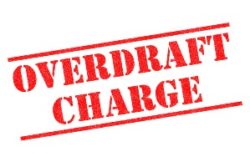Top Class Actions’s website and social media posts use affiliate links. If you make a purchase using such links, we may receive a commission, but it will not result in any additional charges to you. Please review our Affiliate Link Disclosure for more information.
Overview of Overdraft Fees
Canadians are paying more in bank fees than ever, according to a recent report by Radio Canada International. A big number of those fees are ones banks assess when customers overdraw their account; these are called “overdraft fees.”
Banks and credit unions sometimes offer overdraft protection programs. Couched in customer service terms, account holders who, in some cases unwittingly, agree to take part in these programs do not have to worry about their debit card being declined if they happen to run out of money in their checking accounts.
Under these programs, financial institutions will cover the discrepancy, allowing the customer to avoid the embarrassment of a declined transaction; however, banks and credit unions charge hefty overdraft fees to do so.
According to NerdWallet, in 2019, Canadians paid, on average, $35 to major banks for a single overdraft fee. Credit unions reportedly charged an average of $26 for each overdraft.
Banks and credit unions are not limited to one overdraft fee, either; in fact, under the terms of some financial institutions’ checking account agreements, multiple fees may be charged each day. In addition, customers may see multiple days of overdraft fees amounting to hundreds of dollars.
Credit Unions and Banks with Overdraft Fees
Large and small banks and credit unions across the county charge overdraft fees. Some of the major banks that assess these fees are:
- CIBC
- BMO
- Scotiabank
- TD Bank
- RBC
- HSBC
Are Overdraft Fees Legal?
Banking laws in Canada allow financial institutions to charge overdraft fees. However, overdraft protection services offered by banks and credit unions are usually subject to limitations pursuant to the institution’s own terms and conditions, including how many overdraft fees can a bank charge.

If a customer has an account with a monthly overdraft fee, they will pay the fee each month regardless of whether they overdraw their account, the Government of Canada explains. Pay-per-use fees will be assessed each time accounts with these types of overdraft protection plans are overdrawn.
Overdraft Fee Lawsuit Alleges Criminal Interest
While overdraft fees may be legal in Canada, a class action lawsuit alleged fees charged by B.C. credit unions violated Canada’s criminal code.
In fact, several courts concluded the allegations were supported by banking law in Canada, finding overdraft fees in excess of $5 may indeed constitute criminal interest, according to law firm McCarthy Tetrault.
The plaintiffs in the class action lawsuit pointed out the overdraft fees charged by the credit unions amounted to over 1,000 per cent in interest. The complaint contended the overdrafts extended by the credit unions should be considered loans and subject to interest limitations under Canadian banking law that targets predatory lending or loan sharks.
A judge agreed with the plaintiffs’ reasoning.
The credit unions appealed, but the decision was upheld by an appeals court and later adopted in a Supreme Court decision.
Avoiding Overdraft Fees
People are turning to online and digital banking and financial transactions more than ever. However, as consumers play it safe during the ongoing pandemic and order everything from groceries to pharmaceuticals online, it becomes easier to overdraw an account.
Loans Canada recommends consumers take the following action to avoid overdraft fees:
- Organize and anticipate recurring payments, such as bills
- Keep track of fees associated with a bank account
- Use automatic payments to avoid costly mistakes
- Regularly review account statements
- Keep extra money in the account
- Sign up for email alerts about when an account is running low
- Be aware of when a hold may be placed on the account, such as for hotels or gas
- Review overdraft protection programs and opt out if they will lead to large fees
In addition, some banks and credit unions allow customers to link their checking and savings accounts and will move money between accounts to avoid an overdraft.
Some consumers can opt for accounts without overdraft protection, allowing transactions that would overdraw their account to be declined; however, sometimes these transactions can then be subject to a non-sufficient funds fee.
Can Overdraft Fees Be Refunded?
Some banks offer customers a chance to have their overdraft fees refunded if they take certain steps. For example, TD Bank will waive overdraft fees if customers sign up for email alerts in advance and have certain types of accounts, Go Banking Rates says.
Additionally, banks and credit unions may agree to waive an overdraft fee for customers who rarely overdraw their accounts and ask for the waiver, but this is at the discretion of the financial institution.
ATTORNEY ADVERTISING
Top Class Actions is a Proud Member of the American Bar Association
LEGAL INFORMATION IS NOT LEGAL ADVICE
Top Class Actions Legal Statement
©2008 – 2024 Top Class Actions® LLC
Various Trademarks held by their respective owners
This website is not intended for viewing or usage by European Union citizens.

















